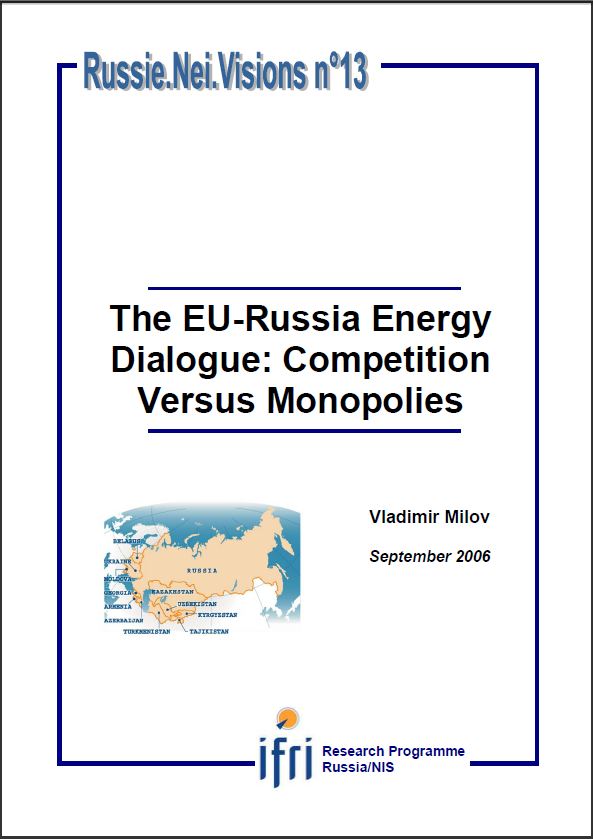The EU-Russia Energy Dialogue: Competition Versus Monopolies

Russia and the European Union have clearly entered a new stage in their energy relations, defined by a growing asymmetry between a strengthened national monopoly on the supply side and a gradual opening of markets in Europe. In this context, a multitude of new approaches to EU-Russia relations have been voiced recently by a wide variety of experts. Unfortunately, many of them involve 'defensive' solutions, driven by lack of mutual trust on both sides. Is a positive approach nevertheless still possible? The paper argues that competition is a key universal value in the development of a new and sustainable energy relationship between Russia and Europe. It is clear that EU competition regulators should take the lead in setting up a new framework for EU-Russia energy relations in the future. The success of their endeavors will not only determine the security of energy supply for European consumers, but also that of the Russian and Eurasian energy markets.
Download the full analysis
This page contains only a summary of our work. If you would like to have access to all the information from our research on the subject, you can download the full version in PDF format.
The EU-Russia Energy Dialogue: Competition Versus Monopolies
Related centers and programs
Discover our other research centers and programsFind out more
Discover all our analysesThe Caspian Sea as an Emerging Energy Hub : Potentials and Limitations
This report analyzes the prospects of the Caspian Sea region — and its key actors except for Russia and Iran — becoming an important energy hub serving the needs of the European Union (EU).
The European Union's Strategic Test in Georgia
The political crisis brewing in Georgia is of an existential nature for the country. What is at stake is Georgia's future as a democratic and sovereign European nation (EU).
Commanders of Putin's Long War: Purged, Reshuffled and Disgruntled
The trend of reshuffling the Russian top military command in the course of a fast-evolving and far from successful war has progressed unevenly both across the Armed Forces’ structures and in time. The rationale for and timing of the abrupt cadre decisions made by Commander-in-Chief Putin often defy logical explanation, and the rare official clarifications are no more informative than the usual information blackout.
Russian Military Manpower After Two and a Half Years of War in Ukraine
In addition to a military victory in Ukraine, the Russian leadership is planning to build up sizable troop formations for a possible conflict with NATO in the Baltic region and the Kola Peninsula. In particular, current plans aim for the military manpower to grow by about 350,000, reaching a total of 1.5 million soldiers and commanders. In the context of the current conflict in Ukraine, this cannot be accomplished without a new wave of mass mobilization.









